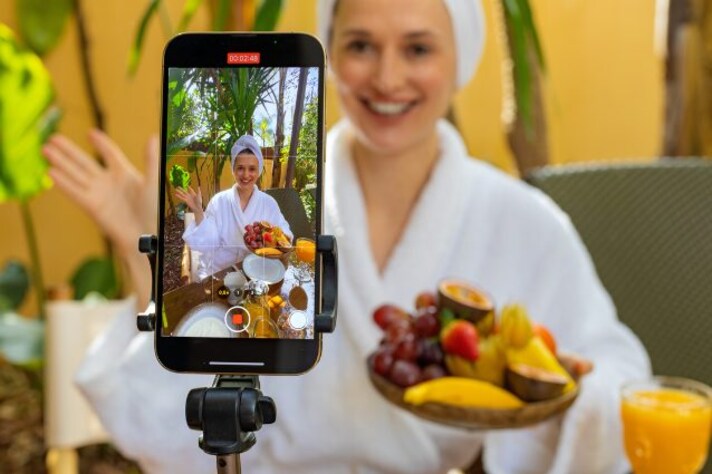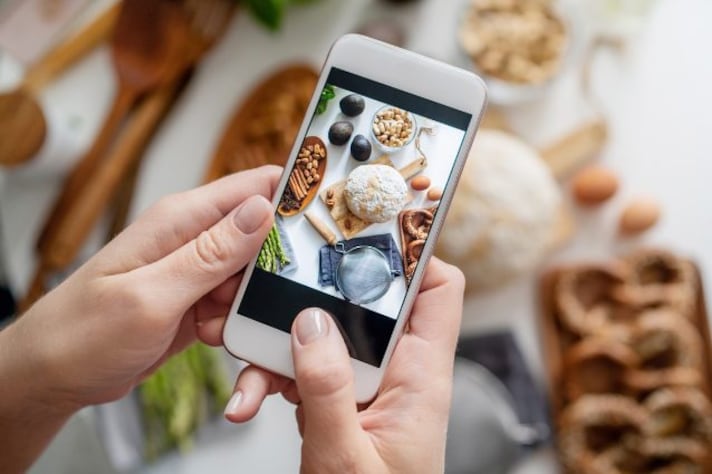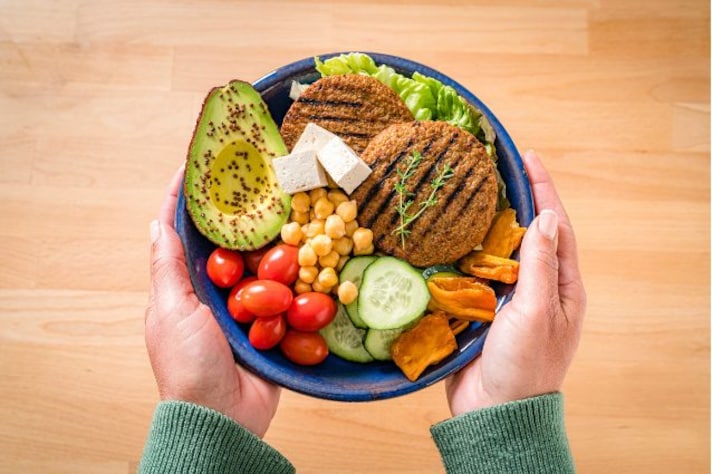What Do Social Media Have to Do With The Rise in Popularity of Organic Food?
Social media plays a key role in the rising demand for organic food by turning it into a lifestyle trend. Platforms like TikTok and Instagram connect users to organic brands and influencers, highlighting health, sustainability, and FOMO-driven trends. By shaping perceptions and creating visibility, social media has made organic food a must-have in today’s digital age.

In recent years, we've seen a marked increase in the demand for organic food. From supermarkets to online marketplaces, shoppers are more interested than ever in what they're putting into their bodies, and organic options are leading the charge. But what's driving this shift in consumption? While factors like health awareness and sustainability certainly play their part, one of the most significant catalysts has been the power of social media. Platforms like Instagram, TikTok, and YouTube have become not just places for entertainment, but key drivers in shaping modern food trends. In fact, it’s not just about a quick scroll anymore – it’s about how social media is revolutionizing our shopping habits, particularly when it comes to organic food.
Social Media as a Virtual Marketplace for Organic Goods
While it might seem odd to think of social media as a marketplace, it's rapidly becoming just that. Social platforms have given consumers unprecedented access to brands, influencers, and products. Through posts, stories, and influencer partnerships, organic food brands can directly engage with audiences, showcase their products, and encourage immediate purchasing.
As highlighted in studies, 80% of people who purchase organic products are influenced by social media contents like Instagram, rife with aesthetically pleasing, health-conscious food content, prompting users to seek out these products for themselves. A simple post about a green smoothie or a recipe featuring organic ingredients can turn a small brand into a household name. It’s not just about seeing food anymore; it’s about seeing lifestyle – and when it’s presented through the lens of a carefully curated Instagram feed or TikTok trend, it feels attainable.

TikTok: The New Age of Food Discovery
TikTok is arguably the most dynamic force in the organic food trend. With its viral "food hacks" and influencers sharing their "eat clean" journeys, it's no surprise that organic food has found a home here. The app’s algorithm, which encourages discovery through short, catchy videos, has allowed smaller, organic brands to become overnight sensations. Whether it’s a viral trend for plant-based recipes or a sustainable food challenge, TikTok has made organic food a social currency. And it’s not just the younger generation – even older demographics are being drawn into these conversations, especially when influencers share their personal stories about the benefits of organic food for both health and the environment.
The Rise of Consciousness and Sustainability
One of the major reasons organic food is soaring in popularity is the growing awareness of health and sustainability issues, which social media plays a pivotal role in highlighting. Health-conscious influencers and sustainability advocates have become the modern-day educators of a generation that values transparency and ethical consumption. The rise of #CleanEating, #EcoFriendly, and #SustainableLiving hashtags has turned the spotlight on organic food, tying it to both personal well-being and global sustainability goals. Consumers are no longer just looking for a tasty meal; they want to know where it came from, how it was grown, and whether it’s doing more harm than good. Social media, with its ability to circulate these issues in real-time, has pushed organic food into the spotlight as a solution to these concerns. This newfound transparency, driven by social media influencers who share their own sustainability journeys, encourages more people to choose organic options over conventional products, aligning food choices with broader values of health and environmental care.

The Role of Influencers
In the world of social media, influencers hold the keys to what becomes popular. In the case of organic food, influencers are not just talking about their latest skincare or fashion finds – they're teaching their followers about the importance of what they put in their bodies. With millions of followers looking up to them for advice on everything from fitness routines to nutrition, influencers have become some of the most powerful players in promoting organic food. They’ve transformed the conversation from a niche health trend into a mainstream, must-try phenomenon.
In fact, brands are increasingly partnering with influencers to market their organic products, knowing that their recommendations can have a major impact on their audience’s purchasing habits. Whether it’s an unboxing video of a new organic snack brand or a recipe tutorial using only organic ingredients, influencers create a sense of authenticity and relatability that resonates with their followers.
FOMO and the Consumer’s Organic Urge
Fear of missing out, or FOMO, has become one of the most powerful motivators in today’s digital world. Social media thrives on the creation of trends, and when it comes to food, this can be a double-edged sword. While it fosters a sense of community and shared excitement, it also drives people to make food choices they might not have considered before, simply because everyone else is doing it. As more people post about their organic meals and products on social media, the pressure to join in grows.

FOMO is a powerful force behind the organic food trend. Suddenly, organic food isn't just a health choice – it's a social statement. And it’s not just about eating healthy; it’s about keeping up with the trend. Consumers feel they need to incorporate organic foods into their lives to remain in sync with their online communities. After all, if everyone on your feed is posting about their organic grocery hauls, can you really afford to miss out?
;Resize,width=767;)

;Resize,width=712;)
;Resize,width=712;)
